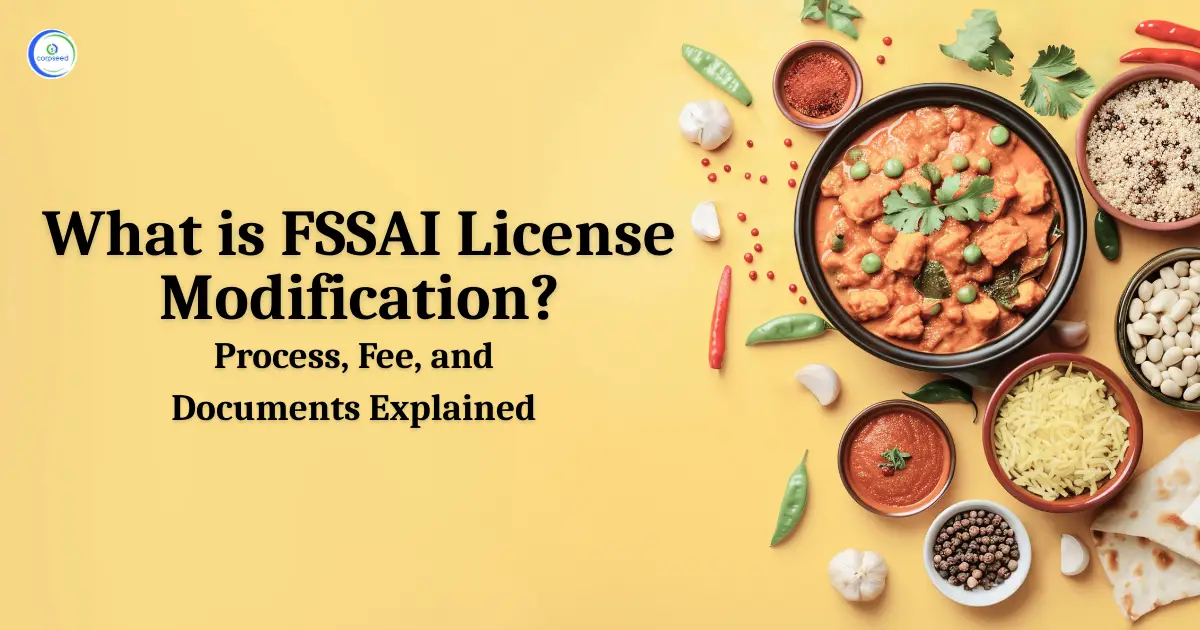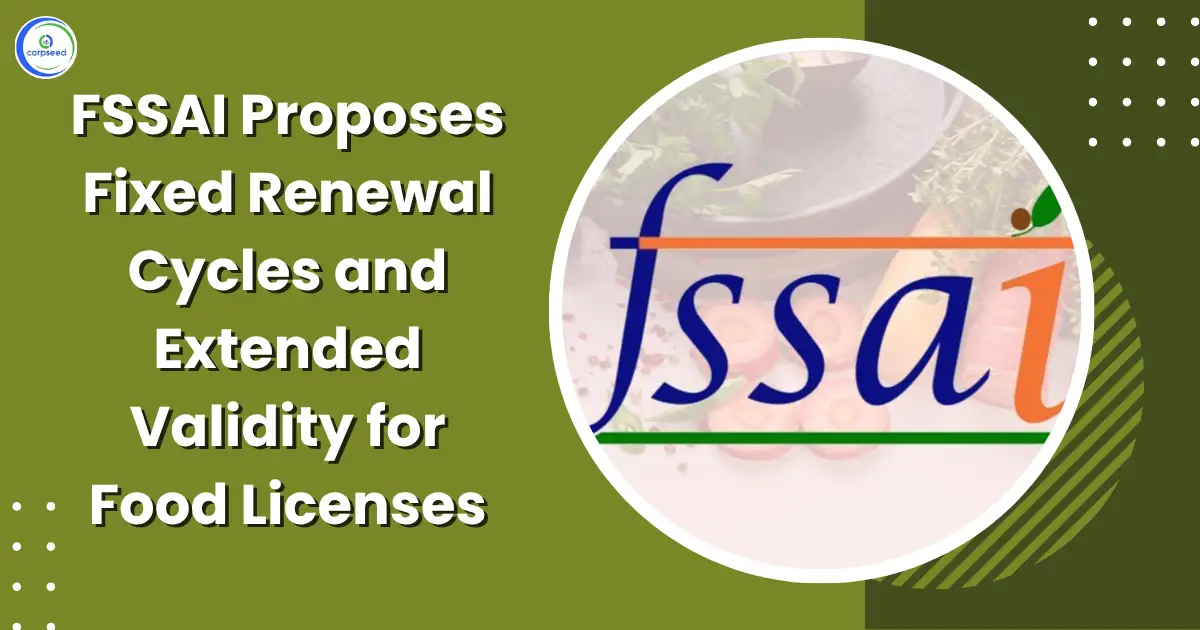Introduction: Food Business Operators
Food is that intrinsic ingredient that not only acts as an adhesive that works towards bringing communities together but at the same time ensures that there is persistent growth in the economy of any country.
The diverse needs and wants of the customers in India has propelled the food business to crop up to fulfill their expectations. The food landscape in India is well under process and undergoing a complete transition. New distribution channels are being set up to cater to the ever growing demand for food.
Read Our Blog: Get Your Food Business Online with FSSAI Registration
Companies are surfacing that are infused with innovative ideas and are responsive to the unique needs of the customers. It is expected that sooner or later the food business in India would fully get automated by the help of technological interventions and the whole ecosystem would bundle up into a complex network.
Food business in India is largely operated by the food business operators who are in turn regulated by the laws in place. Food safety and Standards Act, 2006 is the premium law that governs the activities of every food business operator in India. This law ensures that the food business is conducted well within the framework of law and sticks to every compliance as laid down.
Food hygiene and safety of the food are one of the major aspects that every food business operator must abide by hook or crook.
What do we Understand About the Term Food Business?
The provision of section 3(1) (n) as stipulated under the FSS Act defines the term food business. It simply means to undertake or carry out any activity in relation with the food, for example: selling the food, storing the food, or either manufacturing or distributing it.
The definition of food business also includes its realm of various services related to food like catering services and business that includes the service of selling food ingredients.
Understanding the Role of Food Business Operators
Food business operator can be understood to mean any undertaking that is involved in the activities in relation to food like manufacturing, distributing, selling or storing it. They can be categorized as being public or private in nature.
In accordance with the FSS Act, every person or company that is somehow related to the food business constitutes being a food business operator.
FBO entails the responsibility to maintain the highest quality standards and food hygiene. It is very much accountable if any of the food quality does not stand up to the mark. The FSS Act makes it mandatory for every food business to obtain a food license or get registered before trying hands on establishing the business.
The FBOs are listed under the three main segments. On the very first hand comes the petty food business operators who usually entail a turnover that is less than Rs twelve lakh, they are very much required to fetch the certificate of registration as they fall under the provision that asks for registration.
On the other hand, the food business operators who entail an annual turnover to be more than Rs twelve lakh are required to fetch a license under the respective licensing authority of the state or the central license whichever is suitable. The criteria which decides whether the license would be a state one or a central one would depend on the volume of the food business.
Read Our Blog: How to Start Food Business in India
It is therefore highly crucial for a food business to either get a registration certificate or to fetch a requisite state or central license.
Once the license is obtained by the food business operator, it becomes his responsibility that the registration certificate must be displayed prominently at the place of the food business. In addition, it must be highlighted that the license that is obtained can stand cancelled or suspended if the licensing authority is of the opinion that the food business operator has failed to abide by the set norms and laws.
If at any time it is found out that the food business is being run without a proper license then in that case, the FBO would be liable to imprisonment which can extend to six months and also would include a fine which can extend upto Rs five lakhs.
Every FBO, irrespective of its nature, is entrusted with the role and responsibility of sticking to the practices that preach hygiene. Hence, it is highly important that they follow the footsteps of good sanitary habits that ensure food safety.
Food Business Types and the Required Licenses
There are different kinds of food businesses that either require registration or state or central food license depending on the nature of the business. Given below are the food business kinds and the licenses they need.
- Petty food business: This category constitutes the small thelas and hawkers. They usually consist of small juice shops and the temporary establishment of selling food. Their annual turnover must lie upto Rs twelve lakh. These petty food businesses require a registration certificate and the required fees per annum stand at Rs 100.
- Dairy Units: This category includes the milk chilling units and all the dairy processing units which involve the manufacturing and transportation of the milk. Their criteria stand at the requirement of more than fifty thousand litres of milk every day. They are required to obtain the central license and their annual fee stands at Rs 7500. Where the criteria stands at 10001 to 50,000 litres of milk produced each day, then in that case the state license is required. The annual fees in this regard stand at Rs 5000.
- Vegetable oil processing units: Under this category, the vegetables are processed to produce vegetable oils. The criteria stand at more than 2 MT each day. They would require a central license. The annual fee stands at Rs 7500.
- Slaughtering House: Under this category comes the meat shop and mutton shop and other processing of meats. The criteria stand at having more than large animals. They are required to obtain the central license. The annual fee stands at Rs 7500.
Food Business Operators: Guidelines to be Followed
The food business operators must make sure that they comply to certain guidelines prior t o setting up their business, some of which are listed below:
Read Our Blog: Why Should Food Industry Need A Fssai License
- In the first place, the FBOs must pay due attention to their business location. The premises must be free from any dirt or filth that can accumulate. Regular cleaning should be followed religiously. To be precise, the overall environment of the food premises must smell of hygiene. Also, there must be ample space to facilitate movement and should preach of proper air and light ventilation.
- The next essential aspect that must be paid attention to is with respect to the need of a proper drainage system and a mechanism that efficiently disposes of the effluents. Further, the water used in cooking must be fit for it.
- The food handlers working within the premises must retain good habits like using hair masks and gloves. If any food handler contracts any disease, he/she must inform the management on a prior basis. Practices like nose-blowing and smoking must be strictly prohibited.
- Also, the food handlers must be subjected to regular medical checkups as arranged by the management. Such screening and medical examination records must be duly maintained by the FBO and should be produced at the time of the inspection.
- The practice to ensure that the food remains safe from any contamination and filth must be made part and parcel of the system. While transporting or storing the food, it is to be kept in mind that it doesn't get spoiled. Yet another thing that should not be neglected is the cleanliness of the utensils that are used for preparing the food. They must be changed and repaired from time to time.
- As laid down in the FSS Act, all the food ingredients and food additives must conform to all the compliances and norms.
- FBO must refrain from selling or manufacturing any food commodity containing extraneous matter that is in contradiction with the rules in place. In addition, no distribution of the food article must be done which is constituted to be unsafe in its nature.
- Every FBO must ensure that it has a standard operating procedure. This SOP would enable the proper management to take effect. Also it would help in detecting any damage beforehand.
- It is of utmost importance that the supervisors and the technical staff of the food business must have the necessary educational qualification and expertise in their respective fields. This would encourage the right decision-making and also monitor the food quality. Ultimately all this will culminate in maintaining excellent food standards.
- Every FBO must have a food testing laboratory so that the food can be tested regularly. The laboratory can be the in-house one or the accredited one.
- In accordance with the SOP, the whole system must be made to undergo an audit so that any fault could be pinpointed and attended to in time. Relevant records must be maintained at periodic intervals which must be produced at the time the inspection is being done. All the records must entail the details about the manufacturing, production and distribution mechanisms.
- Last but not least, all FBOs must make it a point that the visitors visiting their premises must adhere to wearing the proper clothing along with the appropriate footwear before entering the place where food is cooked or stored.
Food Business Operator: Required Certification and Training
Every FBO that has procured a license under the FSS Act must undergo training which is a necessary impediment. Food safety training is a program that hammers on ensuring that food safety and hygiene practices are adhered to throughout the process running from its production to distribution.
Read Our Blog: FSSAI Guidelines for Food Handlers
Food businesses that possess the food license must have a supervisor who must be trained in the area of food safety and ensuring hygiene. He/she must be certified for the same.
This has become even a more mandatory requirement especially owing to the covid 19 pandemic.
What are the Challenges that the FBOs Might Face?
After the food license has been issued to the food business operator, it becomes a hard and fast rule that the wholesome responsibility of ensuring that the food is safe lies on the shoulders of the food business operators.
The food safety requirement must be fulfilled throughout the process ranging from food production to food delivery. Hence, it becomes very much a herculean task for the food business operators to maintain the standards. The onus of responsibility directly falls on the FBOs that hold the license, therefore it is no easy task to successfully run a food business.
The major challenge can arise from the kitchen area, where the food is prepared since that is where the filth gets accumulated. Many FBOs neglect such areas and become ignorant when it's about maintaining the standards. Most of these FBOs are run by uneducated people and that's where the problem comes from. The uneducated food owners fail to abide by the guidelines which leads to a decline in the quality of the food.
Read Our Blog: Food Business: FSSAI Registration and Challan Payment
Further, most of the food business operators resort to taking shortcuts and do not even bother to adopt safer disposal methods. Even the equipment being used rot with dirt and filth.
FBOs might have to face many issues pertaining to the food handlers. This may range from ensuring their welfare to subjecting them to regular medical checkups. Considering the situation of India, most of the food handlers are not degree holders, they are amateurs and lack education. Handling them casts a lot of pressure on the supervisors or the management.
The very next challenge comes hidden in meeting the varied tastes and demands of the customers. It cannot be ignored that the customers come from numerous social and economic backgrounds and with that comes the variation in the food they wish to have. The ultimate challenge lies in ensuring that the customer is satisfied at the end of the day.
Sometimes the food businesses have invariably low budgets and they compromise in hiring the required number of employees. Usually, it is seen that the food handlers are the ones that are employed for doing almost all the tasks. To save petty amounts, the FBOs resort to detracting from the guidelines and following shortcuts.
Conclusion
Keeping in view the situation of India, most of the FBOs rarely undergo any formal training with regard to safety and hygiene standards. Many FBOs are functioning even without a food license or without the proper registration certificate. Hence, there is many requirements of the basic infrastructure that should impart proper training and education to the FBOs before they establish their venture.
Another important factor that plays a major role in keeping intact the health guidelines lies in the effort of the FBOs to make themselves abreast with the laws and regulations. Once this is tapped on, maintaining quality standards would not be a far-fetched idea.
This portion of the site is for informational purposes only. The content is not legal advice. The statements and opinions are the expression of author, not corpseed, and have not been evaluated by corpseed for accuracy, completeness, or changes in the law.
BOOK A FREE CONSULTATION
Get help from an experienced legal adviser. Schedule your consultation at a time that works for you and it's absolutely FREE.









